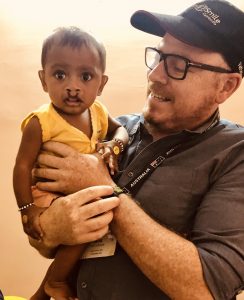Dr Mark Lee and the team always ensure patients, past, present and prospective, are empowered to make informed choices about their healthcare and understand the risks and benefits of their preferred procedure.
Read on to find out more about the proposed regulatory action from the Therapeutic Goods Administration (TGA) for breast implants and what it means for you.
Why is there a proposed cancellation or suspension?
The TGA is currently monitoring the association between breast implants and anaplastic large cell lymphoma (ALCL), a rare cancer of the immune system. This cancer is often called BIA-ALCL, or breast implant associated anaplastic large cell lymphoma. While the factors that cause the cancer are not confirmed, there are certain risk factors that increase the likelihood of BIA-ALCL including:
- textured implants
- bacterial contamination during surgery
- the patient’s genetic predisposition
- length of time the patient has had the implant.
The TGA has proposed the cancellation or suspension based on this rare complication and has identified possible implants that need to be further investigated to ensure the utmost safety for patients moving forward.
At this stage, this is just a proposed cancellation and leading implant manufacturers are conducting thorough data reviews and safety checks to establish any patient risks.
Does this affect all types of breast implants?
The TGA has proposed regulatory action in relation to a number of textured implants only. This includes all MENTOR® SILTEX® Microtextured Breast Implants and Expanders, as well as various other providers.
All reported cases of BIA-ALCL in Australia involve patients who have had a textured implant at some point in their life. Experts believe, based on the evidence currently available, breast implant associated cancer is not related to either the contents (saline/silicone) or shape (round/teardrop) of the implant.
What happens from here?
The companies who make the affected implants need to provide additional information including safety research and data to the TGA for assessment along with the results from their own laboratory tests. The outcome of this will determine whether the implants will continue to be used, be suspended for further research or be cancelled. When more information is available, we will make this available on our blog and social media pages.
I already have breast implants, do I need to get them removed?
Generally, if you have implants and you have not noticed any significant changes to your body, it is unlikely there is any reason to worry. Any changes you may notice are unlikely to be BIA-ALCL. Given BIA-ALCL is so rare, experts do not recommend preventative removal of breast implants, unless there are specific concerns or complications with the implant.
Our strongest recommendation is to consistently monitor your breasts and overall health, and always discuss any concerns or changes you have noticed with your GP or surgeon.
I’m looking at getting breast implants, what should I do next?
It’s important you understand any surgical or invasive procedure carries risks, and no medical device is completely without risk.
If you are considering breast implants, we recommend booking an appointment with Dr Lee to discuss your desired outcome, explore the benefits and risks of the different types of implants, and determined the right type of implant for you.
If you would like to learn more about the possibility of breast implant removal surgery, or have any concerns about your current breast implants, Dr Lee and his team are always more than happy to talk about your options. Choosing to have plastic surgery is a serious personal decision and undertaking. Please be mindful that any surgical or invasive procedure carries risks.
Useful links
Therapeutic Goods Administration – Breast Implant Hub
TGA’s review of textured breast implants and preliminary outcomes

Join the conversation